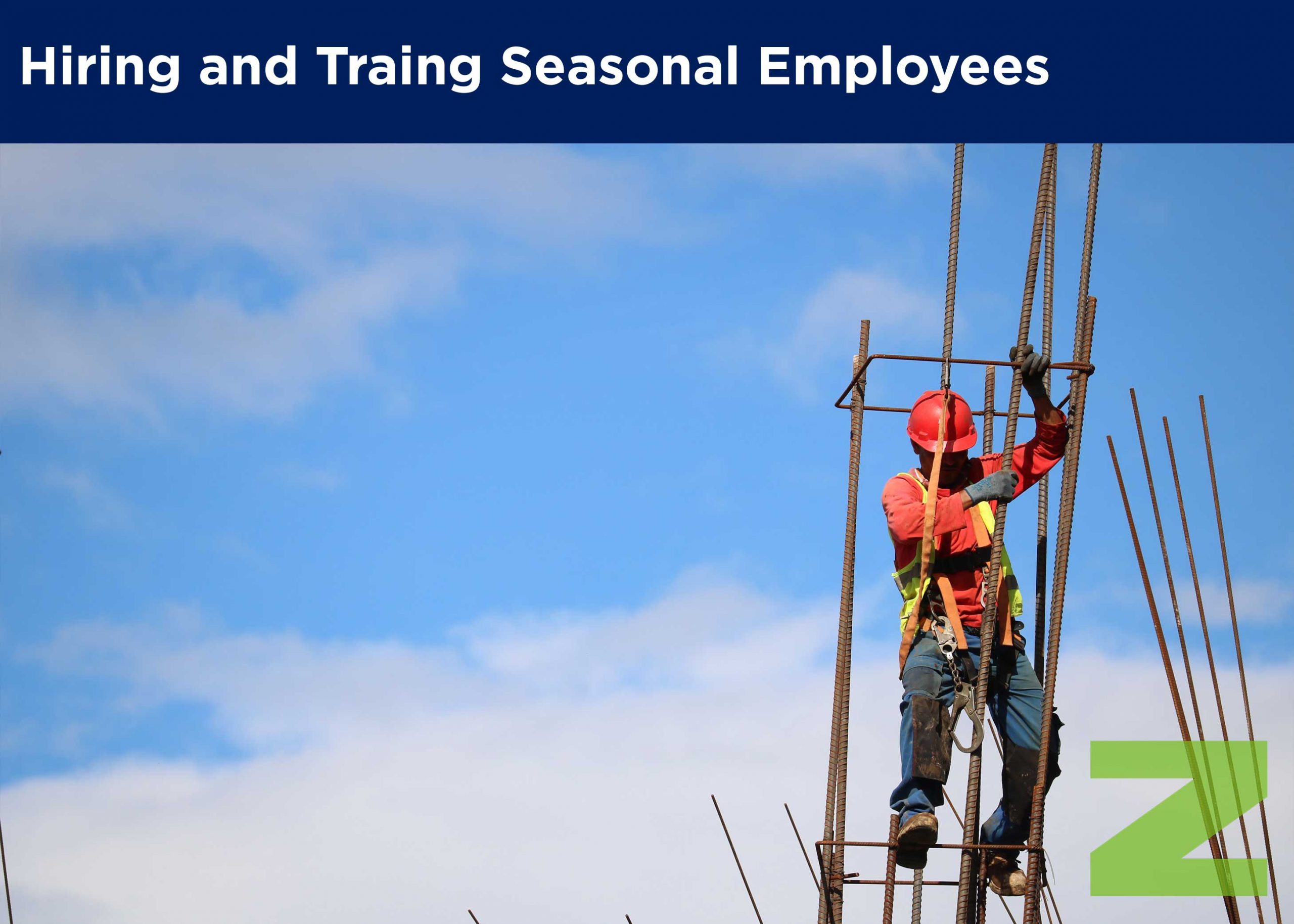Loss Control Insights
A Guide to Hiring and Training Seasonal Employees
Hiring seasonal workers is a necessity in some industries such as construction, manufacturing, agriculture, lawn care and retail. These workers can boost production during the summer, over the holiday season or when there’s a large contract to fulfill.
There are various ways to find the necessary workers, from temp agencies to college and community college internship programs to recommendations from current employees or online job-seeking sites.
Whatever way these workers arrive at your company, EMC Senior Risk Improvement Representative Pat Kelley says there is one philosophy to follow as you bring these employees on board. “In a nutshell, seasonal workers must be treated just like permanent employees,” he says.
This means that you must follow the same policies as when you hire your permanent workforce. You’ll start with a written job description for seasonal workers. Other practices may include medical checks, drug tests, pulling MVRs and other pre-work screening. Depending on the work they will perform, you may review copies of licenses and certifications, and require standard government ID cards. If you are working through a temp agency, some of these checks may be handled by the agency.
Training Is a Big Deal
An area of concern is providing adequate training for the tasks temporary workers will perform, as well as the same safety training and personal protective equipment (PPE) as permanent employees receive.
Pat says, “It’s easy to rush through training to get the seasonal hires on the job ASAP. And if the new temp is only going to be on the job for a few weeks or months, you may wonder if it’s worth the time and money to run the temp through a full-scale course on procedures and safety.”
He recommends thinking about the time spent on training in another way: If seasonal workers don’t know how to perform the job and don’t have a background on safety rules and regulations, they may make some major errors causing injury to themselves and others. According to the Bureau of Labor Statistics, since 2012 more than 15% of U.S. occupational fatalities have been contract workers, and a 2013 ProPublica analysis found that temp workers are 72% more likely to be injured on the job than permanent employees. This demonstrates that time spent on training is worth it, even if the employee is short-term and even if the worker is employed by a temp agency.
With careful planning, it may be possible to shorten training time somewhat. For example:
- Assign these workers tasks that don’t require as much training. By shifting workflow, permanent employees may be able to move into more complex jobs, leaving easier duties for the temps. This is contrary to what many companies do; it’s common to hire temps to take on the most dangerous or repetitive tasks, which can be a mistake if you aren’t providing the essential safety and procedural support.
- Keep the range of tasks and the number of work areas as narrow as possible so you have less training and fewer safety issues to worry about. If the new hire will spend no time on a ladder, no ladder safety training is needed.
- Consider where the employee will be working. If the area is not hazardous, it may require less safety training. Training for the specific job, rather than a complete picture of your facility, is only feasible if the worker stays in one area and doesn’t cross into other danger-prone areas. For example, if the temp will unload trucks but not enter the manufacturing facility, safety training and techniques may provide details for moving and lifting heavy boxes. However, if that same worker must deliver the boxes to the warehouse shelves, you would also train on moving safely within the warehouse.
- Assign a mentor for the first few days or weeks so the seasonal worker picks up tips and important details while shadowing a permanent worker.
- Provide a written list of job duties and safety checklists so the temp worker can refer back to information you’ve provided verbally during training classes.
In addition, if the staffing agency you hire from offers the training, be sure it is thorough and covers the content your seasonal workers need to know to perform their tasks safely.





